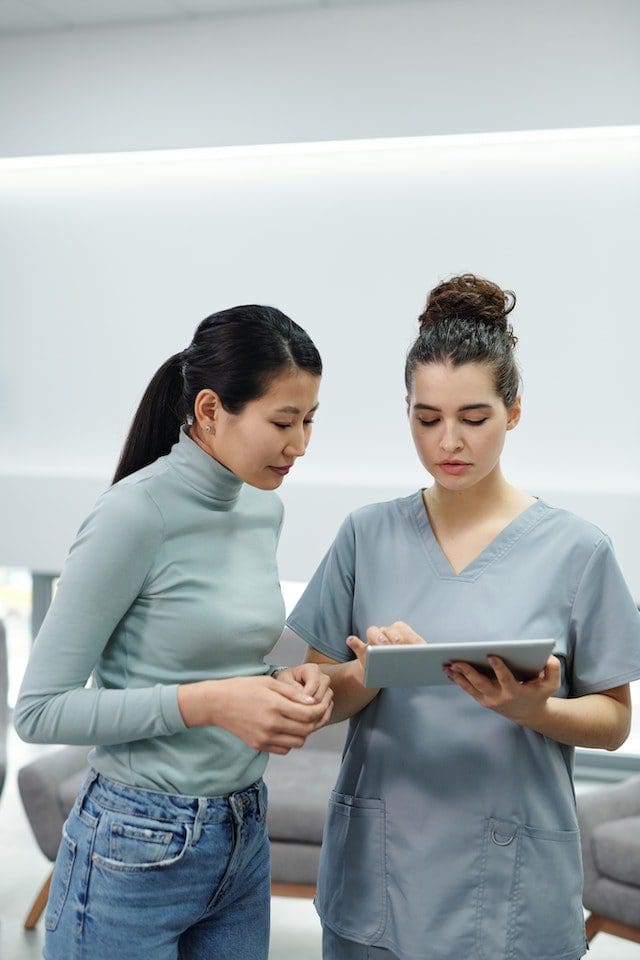For Los Angeles residents, you will be happy to know the city is filled to the brim with world-renowned medical centers and establishments. This means whatever health concerns you have, there is always an expert healthcare professional only a stone’s throw away to help you and provide specialist treatment. While some people are more than happy to visit their doctor’s office, others are embarrassed and reluctant to do so, especially those with endometriosis.
If you are experiencing heavy and painful periods, you need to see your doctor to establish why this keeps happening. These symptoms could signal endometriosis. You may also need to visit your gynecologist, who specializes in the health of your uterus, ovaries, and other areas of the female reproductive system.
To get the most out of your appointment, it helps if you go in well-prepared. With that in mind, here is a guide on how to converse with your LA doctor about endometrioses, so you can leave their room feeling satisfied and have the right treatment plan in place.
Jot Down Questions
Before going for your doctor’s appointment, you need to sit down and think about what important things you’d like to understand further about your condition and what treatment options are available. It’s best to bring along a written list of questions, so you know what to ask and don’t leave having more questions than answers!
Certain things you may want to ask include what is causing your symptoms, what treatment options are right for your needs, whether there are any side effects associated with treatment, and whether lifestyle changes can make a difference. Other questions to ask include what actions to take if your symptoms don’t improve and what will happen if you ignore symptoms. If you have any other questions, write them down! Don’t feel embarrassed about asking questions. We are certain your doctor will have heard them all before.
Prepare Your Answers
While you will undoubtedly have many questions you want answered, your doctor will ask you many too. Therefore, it’s good to come prepared for the appointment, so you are not caught off guard, and most importantly, give your doctor a better idea of what you are going through and what actions need to be taken.
Common questions may include what your symptoms are when they first started, if they happen to get worse at particular points of the day, and what makes them better or worse. You may benefit from starting a journal and writing down your day-to-day experiences. Your doctor can take a look and may provide different treatments.
Track Your Symptoms
When letting your doctor know about your symptoms, it’s important to be as specific as possible. For example, if you feel a sharp stabbing pain in the lower part of the pelvis, make sure to say this rather than your belly hurts.
Some of the common symptoms of endometriosis include painful periods, painful sex, cramps, and pain when you urinate. Other symptoms include irregular periods, heavy bleeding, diarrhea, and difficulty getting pregnant. You can check out the Patient’s guide on endometriosis. They outline the condition in greater detail and the symptoms so you can learn more about endometriosis and feel more prepared for your doctor’s appointment. Make sure you don’t leave any symptoms out, even if there doesn’t appear to be a clear link to endometriosis. Your doctor needs to fully learn about anything you have noticed or experienced.
Open Up to Your Doctor
While we hope our words give you more confidence, you may still be hesitant to visit your doctor. We appreciate it can be difficult to discuss endometriosis. But you must be open and honest with your doctor. Never downplay your pain. Try and describe your experience as accurately as possible. Using words like sharp, burning, aching, or dull will help your doctor when it comes to diagnosis and treatment.
Make sure that you explain how your pain impacts your life. You may find you have severe symptoms that you have to skip social events or miss days of work or school. Also, your doctor will want to know whether your symptoms vary from month to month. The great thing about living in Los Angeles is there are a wide array of endometriosis specialists to choose from. Make sure to read ratings and reviews from other patients. This should put your mind at ease and make you feel more prepared for your appointment.
You should feel no shame in seeing your doctor if you have endometriosis. In fact, millions of women in the United States are in the same position. Once you’re at your appointment armed with questions, answers, and your experience, you will be on the journey to finding treatment to ease symptoms and improve your quality of life.
Featured Photo by Cedric Fauntleroy: https://www.pexels.com/





